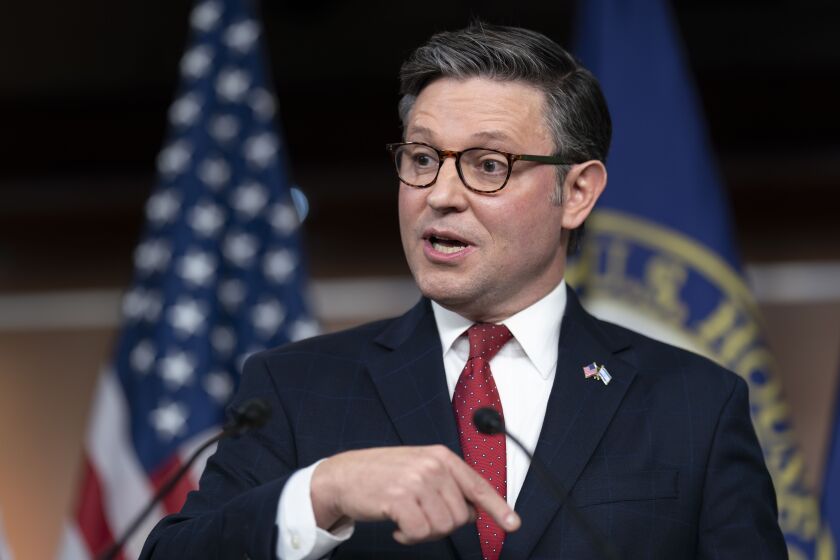In a move to avert a pre-holiday season government shutdown, the House of Representatives passed a short-term funding bill on Tuesday night with strong bipartisan support. The bill will keep federal agencies open at current spending levels until mid-January and avoid a Friday shutdown that would have resulted in government workers being furloughed and essential services being suspended.
The bill, which passed by a vote of 336 to 95, was introduced by Speaker Mike Johnson, R-La., who took on the role less than a month ago after former Speaker Kevin McCarthy, R-Calif., was ousted. Johnson's plan received criticism from some members of his own party, with 93 Republicans voting against it due to its lack of spending cuts and conservative policy riders.
However, Johnson's plan was tacitly approved by Senate leaders, indicating that it will likely be passed in the Senate and signed into law by President Joe Biden before the current government funding expires on November 17.
Conservatives are perplexed why Speaker Mike Johnson is surrendering to Schumer and Jeffries.
This is unacceptable.
— Charlie Kirk (@charliekirk11) November 14, 2023
The bill's passage marks the first major legislative test for Johnson, who has been a vocal ally of former President Donald Trump. But Johnson's plan to split up funding deadlines received backlash from conservative members of the House Freedom Caucus, who believed it did not go far enough in cutting spending.
Former Trump chief strategist Steve Bannon also criticized Johnson's plan, calling it an "abject surrender" and "worse than unacceptable" on social media platform GETTR. Other prominent conservative figures, such as Charlie Kirk and Gunther Eagleman, also spoke out against the bill, stating that it "failed" the American people.
Despite these criticisms, the majority of Johnson's GOP Conference supported the bill, with only two Democrats voting against it.
The bill will give Congress more time to pass individual appropriations bills that will set the next year's spending priorities. This comes after fiscal year 2023 government funding had been extended through November 17, but faced with another looming deadline, House and Senate leaders agreed that a short-term extension, known as a continuing resolution (CR), was necessary.
Why did Trump-endorsed “MAGA Mike Johnson” SURRENDER to Chuck Schumer and Hakeem Jeffries and pass such a pathetic Continuing Resolution (CR) with absolutely NO spending reductions and NO border security??
WE NEED ANSWERS — ASAP!!! pic.twitter.com/2wvhvzzyjt
— Proud Elephant 🇺🇸🦅 (@ProudElephantUS) November 14, 2023
Johnson's plan includes two separate deadlines for funding different parts of the government, forcing lawmakers to address traditionally less controversial appropriations bills by January 19. The remaining eight appropriations bills must be worked out by February 2, potentially preventing Congress from lumping them into a massive "omnibus" package.
On Tuesday, Senate Majority Leader Chuck Schumer, D-N.Y., stated that he would work with Senate Minority Leader Mitch McConnell, R-Ky., to pass the bill before the Friday midnight deadline.
Overall, the bill's passage was met with relief by Democrats, who were wary of Johnson's plan to split up funding deadlines. It also prevents them from having to vote on a CR that would have resulted in lower funding levels than those set for fiscal year 2023.

